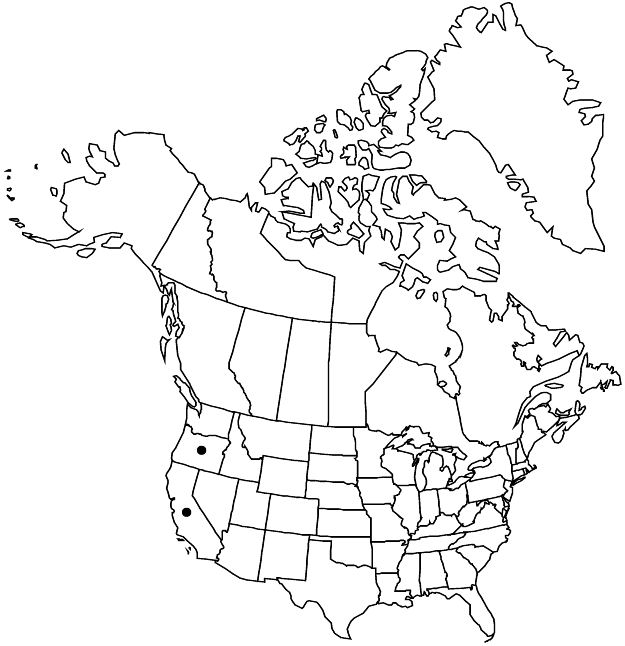Difference between revisions of "Viola hallii"
Proc. Amer. Acad. Arts 8: 377. 1872.
FNA>Volume Importer |
FNA>Volume Importer |
||
| Line 28: | Line 28: | ||
|elevation=500–2100 m | |elevation=500–2100 m | ||
|distribution=Calif.;Oreg. | |distribution=Calif.;Oreg. | ||
| − | |discussion=<p>Viola hallii was discovered on the grounds of Willamette University in Salem, Oregon, by Elihu Hall, a professor at that institution (V. B. Baird 1942). Leaves of V. hallii are similar to V. beckwithii.</p> | + | |discussion=<p><i>Viola hallii</i> was discovered on the grounds of Willamette University in Salem, Oregon, by Elihu Hall, a professor at that institution (V. B. Baird 1942). Leaves of <i>V. hallii</i> are similar to <i>V. beckwithii</i>.</p> |
|tables= | |tables= | ||
|references= | |references= | ||
| Line 52: | Line 52: | ||
|publication year=1872 | |publication year=1872 | ||
|special status=Endemic | |special status=Endemic | ||
| − | |source xml=https://jpend@bitbucket.org/aafc-mbb/fna-data-curation.git/src/ | + | |source xml=https://jpend@bitbucket.org/aafc-mbb/fna-data-curation.git/src/8f726806613d60c220dc4493de13607dd3150896/coarse_grained_fna_xml/V6/V6_223.xml |
|genus=Viola | |genus=Viola | ||
|species=Viola hallii | |species=Viola hallii | ||
Revision as of 17:46, 18 September 2019
Plants perennial, caulescent, not stoloniferous, 5–22 cm. Stems 1–3, decumbent or ascending to erect, ca. 1/2 subterranean, glabrous, clustered on single, short, vertical, deep-seated caudex. Leaves basal and cauline; basal: 1–4, palmately compound, ± 2-ternate or 3-ternate, leaflets 3; stipules adnate to petiole, forming 2 linear-lanceolate wings, unlobed, margins entire, apex of each wing free, acute; petiole 5–8 cm, glabrous; blade ovate to deltate, 2.8–6 × 2.6–6.5 cm, ± coriaceous, base tapered, ultimate lobes narrowly elliptic, lanceolate, or oblanceolate, 1–7 mm wide, margins entire, ciliate or eciliate, apex acute, mucronulate, surfaces glabrous; cauline similar to basal except: stipules usually lanceolate, sometimes broadly ovate, ± leaflike, margins toothed; petiole 1.3–6 cm; blade 2–4.8 × 1.2–5.5 cm. Peduncles 2.5–11 cm, glabrous. Flowers: sepals lanceolate to ovate, margins ciliate, auricles 0.5–1 mm; petals: upper 2 almost black abaxially, dark reddish violet adaxially, lower 3 pale yellow, cream, or ± white, lateral 2 bearded, with deep yellow to orange patch basally, dark reddish violet-veined, lowest with deep yellow to orange patch basally, dark reddish violet-veined, 5–18 mm, spur yellow, gibbous, 0.5–2 mm; style head bearded; cleistogamous flowers absent. Capsules ellipsoid, 4–12 mm, glabrous. Seeds light brown, shiny, 3.2–3.5 mm. 2n = 60, 72.
Phenology: Flowering Apr–Jul.
Habitat: Open forests, grassy hills, chaparral, frequently serpentine or gravelly soil
Elevation: 500–2100 m
Discussion
Viola hallii was discovered on the grounds of Willamette University in Salem, Oregon, by Elihu Hall, a professor at that institution (V. B. Baird 1942). Leaves of V. hallii are similar to V. beckwithii.
Selected References
None.
